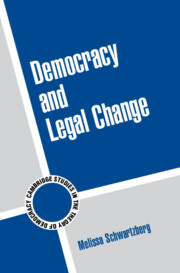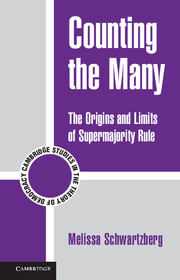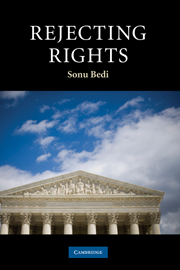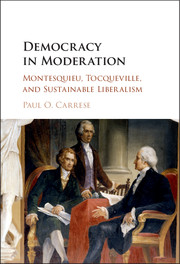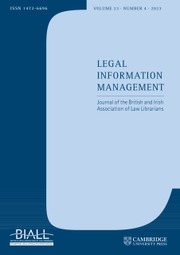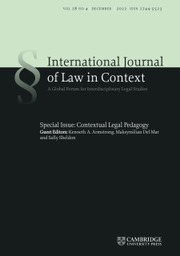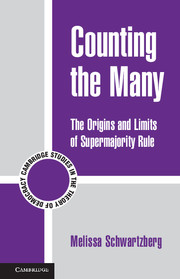Democracy and Legal Change
Since ancient Athens, democrats have taken pride in their power and
inclination to change their laws, yet they have also sought to
counter this capacity by creating immutable laws. In <i>Democracy and
Legal Change</i>, Melissa Schwartzberg argues that modifying law is a
fundamental and attractive democratic activity. Against those who
would defend the use of entrenchment clauses to protect key
constitutional provisions from revision, Schwartzberg seeks to
demonstrate historically the strategic and even unjust purposes
unamendable laws have typically served, and to highlight the
regrettable consequences that entrenchment may have for democracies
today. Drawing on historical evidence, classical political thought,
and contemporary constitutional and democratic theory, <i>Democracy
and Legal Change</i> reexamines the relationship between democracy and
the rule of law from a new, and often surprising, set of vantage
points.
- Diverse and eclectic material; may interest scholars from a wide range of disciplines
- Treats well-known cases (e.g., American founding) from a fresh perspective
- Combines political theory with empirical research
Reviews & endorsements
"This important book marks the emergence of a powerful new voice in democratic theory. In Democracy and Legal Change Melissa Schwartzberg celebrates the ‘pragmatic experimentalism’ embodied in democratic politics with its attendant virtues - a capacity for legal and political innovation, a self-conscious fallibilism, an embrace of pluralism, and a commitment to deliberative processes. She addresses the recurrent anxieties that this experimentalism generates and warns us to resist the resulting temptation to inoculate or immunize laws from democratic revision. The great political danger, Schwartzberg insists, resides not in our democratic practices and institutions, but in the predictable efforts of relatively advantaged political individuals or groups to manipulate our anxieties to their own advantage, thereby subverting political commitments we hold dear. This is a robust defense of democratic politics for perilous times."
James Johnson, University of Rochester
"Retrieving the history of concerns about the instability of law in a democracy and about the incompatibility of restrictions on law-making with democracy,
Melissa Schwartzberg exposes deep fault lines in the theory of democratic constitutionalism. Her well-argued position that entrenching any rules, including basic rights, against revision is a provocative one that constitutional theorists must take seriously."
Mark Tushnet, Harvard Law School
"Entrenchment is a topic central to modern discussions of constitutionalism and nation-building. Melissa Schwartzberg has done us a service by bringing together a history of entrenchment (from ancient Athens to postwar Germany) with some powerful insights into both the merits of constitutional entrenchment and its potential incompatibility with democracy. Her democratic arguments are particularly compelling: Schwartzberg shows that permitting constitutional change is not just an indulgence to majority rule, but an essential part of the life process of a mature system of law. Constitutional theorists and political scientists alike will profit from reading this clear and beautifully argued book."
Jeremy Waldron, University Professor, New York University, and Author of The Dignity of Legislation
"This book breathes some fresh air into debates about democracy’s current alliance with constitutionalism. Going beyond familiar concerns about explicit limits on majority rule, Schwartzberg shows how reliance on constitutional constraints shapes the way in which democratic legislatures exercise their legitimate power to make law. In doing so, she broadens our understanding of constitutional politics in interesting and important ways."
Bernard Yack, Lerman-Neubauer Professor of Democracy, Brandeis University
"Overall, this book is a very informative and interesting book,...The combination of a detailed and comprehensive historical analysis, well-structured conceptual framework, normative democratic argument, and an accessible style of writing will make this book an enjoyable and useful read for a wide scholarly audience..."
Magdalena Zolkos, University of Alberta, The Law and Politics Book Review
Product details
June 2007Adobe eBook Reader
9780511282874
0 pages
0kg
This ISBN is for an eBook version which is distributed on our behalf by a third party.
Table of Contents
- 1. Introduction: explaining legal change and entrenchment
- 2. Innovation and democracy: legal change in ancient Athens
- 3. Law reform in seventeenth-century England
- 4. Fallibility and foundations in the American constitution
- 5. Protecting democracy and dignity in post-war Germany
- 6. Conclusion: defending democracy against entrenchment.

